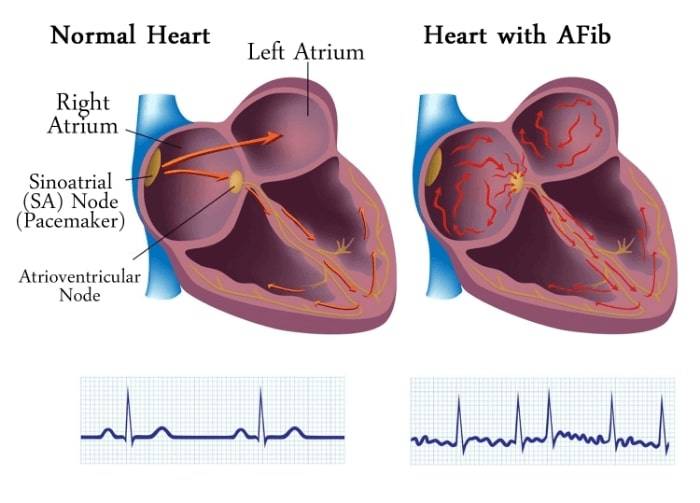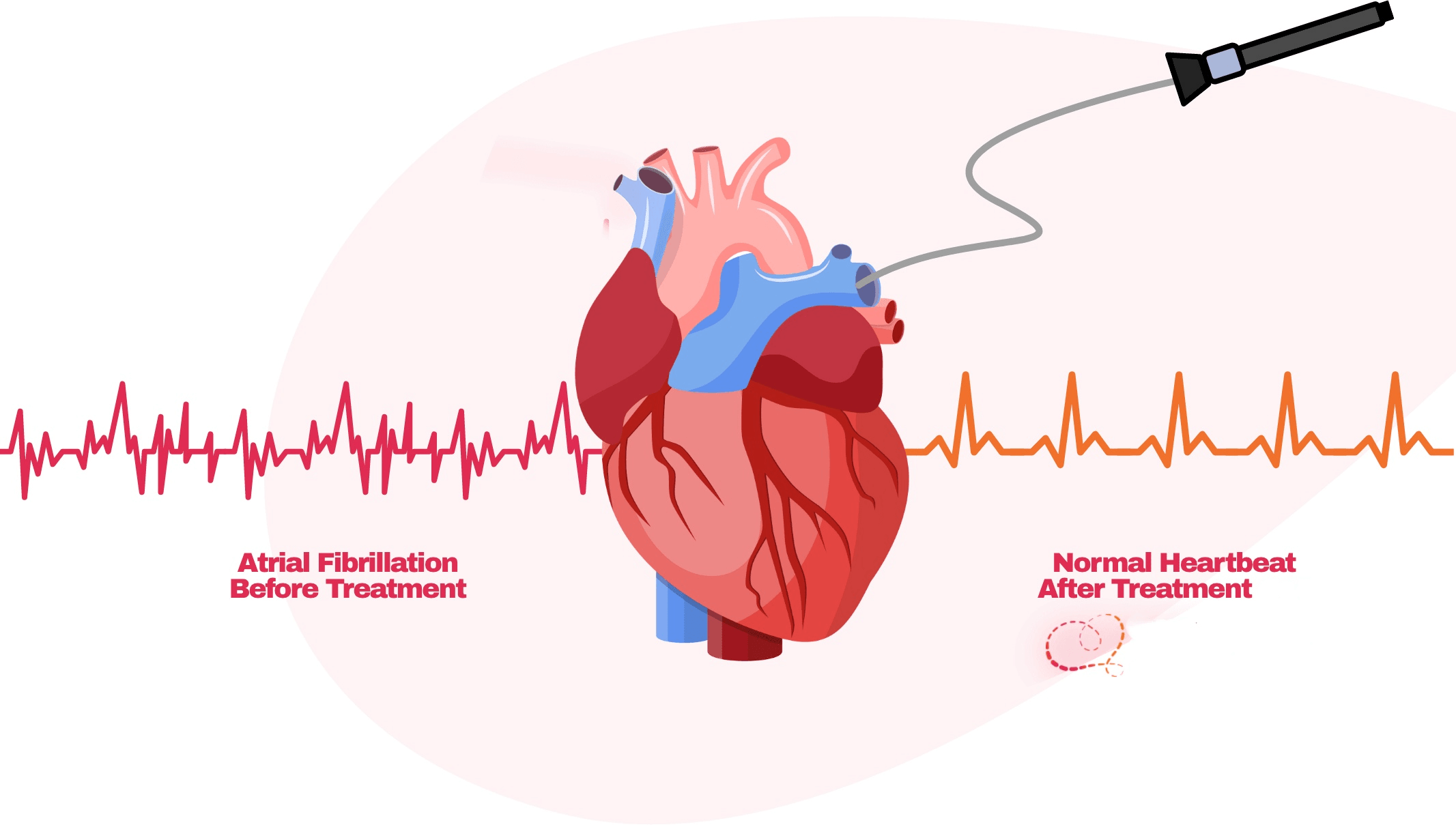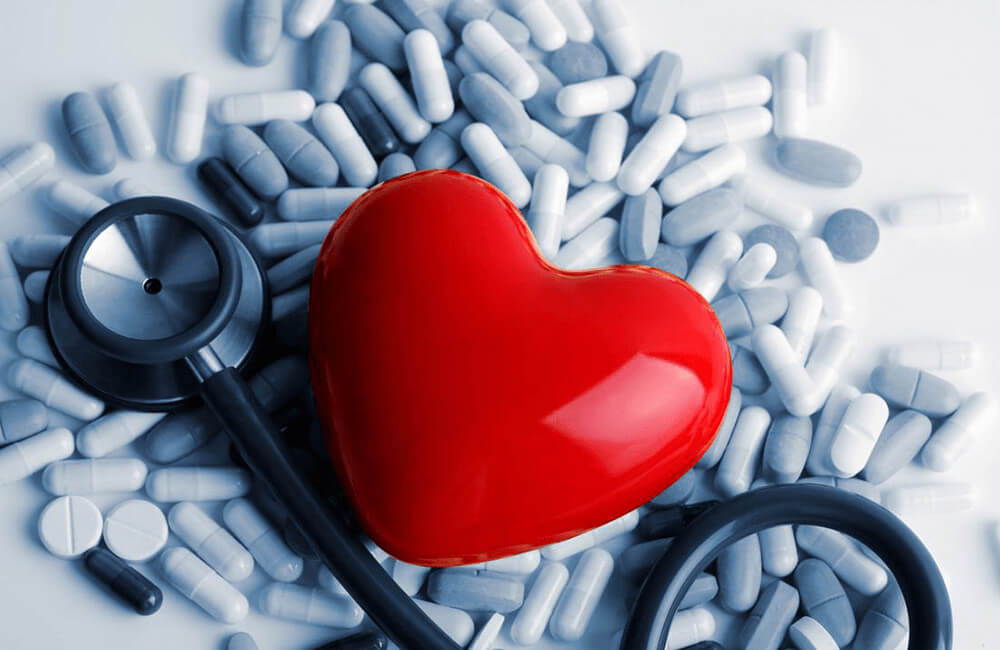Heart Palpitation? Chest Pain? AFib May Be to Blame!

Aunt Lala, 66 years old, has suffered from rheumatic mitral stenosis for more than 20 years. Recently, she always felt palpitations, chest pain and shortness of breath. So she went to the hospital to have it checked. The doctor used a stethoscope to hear sounds made by Aunt Lala's heart, and checked her ECG records. Then she was told that it was caused by atrial fibrillation (AFib) and she needs to insist on taking aspirin every day.
What is atrial fibrillation? Why does Aunt Lala need to take aspirin every day?
Today we're going to take a look at those things about atrial fibrillation.
What is AFib

Atrial fibrillation (AFib) is one of the most common clinical arrhythmias. The atria lose their normal effective contraction and are in a state of rapid and disordered fibrillation, with a frequency that can be as fast as 300-600 beats per minute, and a rapid and irregular ventricular beat that can reach 100-200 beats per minute.
In a normal person, the contraction of the atria is a uniform and consistent contraction, similar to the perfect drumming performance, where each drummer is methodically beating the drum in rhythm to produce a strong and powerful sound. However, if the performers are not in the same rhythm, the scene will only be noisy.
Atrial fibrillation can be described as that the heart beats irregularly, similar to the terrible drumming performance. Everyone no longer obeys the command; the heart does not follow the normal rhythm to contract, become fast and irregular. The drums are at best a failure, but if the heart is beating irregularly, the situation is bad.
Different types of AFib
The type of AFib varies from the episodes of AFib and its response to treatment.
1. Classification according to the duration of AF episodes
- Paroxysmal AFib: Episodes of atrial fibrillation lasting less than 7 days, mostly within 48 hours. It can be converted to sinus rhythm on its own.
- Persistent AFib: Episodes of atrial fibrillation lasting more than 7 days. It requires medications or electric shocks to return to sinus rhythm.
- Permanent AFib: An episode that cannot be terminated on its own or it is terminated and then recurs.
2. Classification according to the etiology of atrial fibrillation
- Valvular AFib: Atrial fibrillation caused by rheumatic heart valve disease, heart valve replacement, or valvuloplasty.
- Nonvalvular AFib: Atrial fibrillation not caused by rheumatic heart valve disease, mechanical or biological valve replacement, or valvuloplasty. Atrial fibrillation is considered idiopathic or isolated when the age of onset is less than 60 years and there is no clinical or echocardiographic evidence of cardiopulmonary disease.
What is the treatment for atrial fibrillation

- Restore the Normal Heart Rhythm
The fibrillating atria must be allowed to beat according to a normal rhythm. You cannot let the fibrillation go on in a disorderly manner but must follow the unified command of the "commander", which is called the sinus node in medical terms. A normal and regular heart rhythm is called sinus rhythm. Medications such as amiodarone can be taken to restore sinus rhythm.
- Slowing the Heart Rate
The heart rate has to be slowed down. Medications such as propranolol can be taken to slow the heart rate.
- Preventing Blood Clots
It is critical to prevent thrombosis. Because many patients with atrial fibrillation will have severe cerebral apoplexy and thromboembolism in the future. Thus all patients with atrial fibrillation should be treated with anticoagulation and may take long-term aspirin to prevent thrombosis. That's why aunt Lala needs to take aspirin every day. In addition, depending on the severity of the patient's condition, it is possible that other types of medications (e.g., warfarin) may be required for anticoagulants. This will need to be evaluated in detail by a cardiologist.



